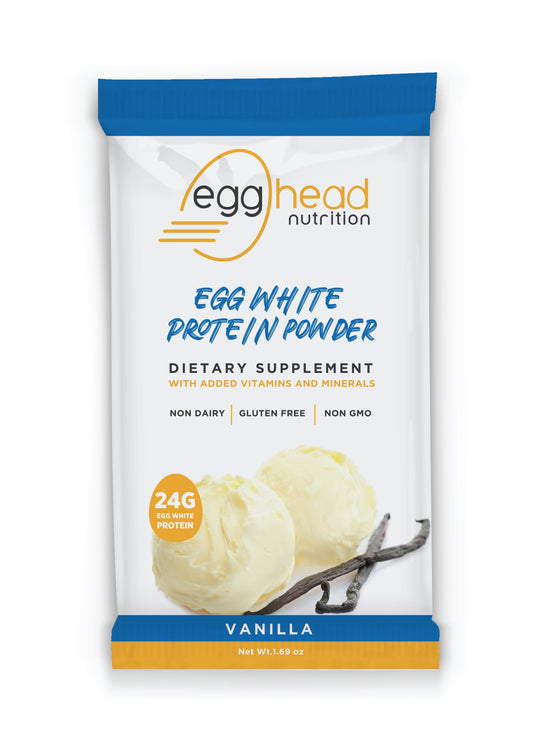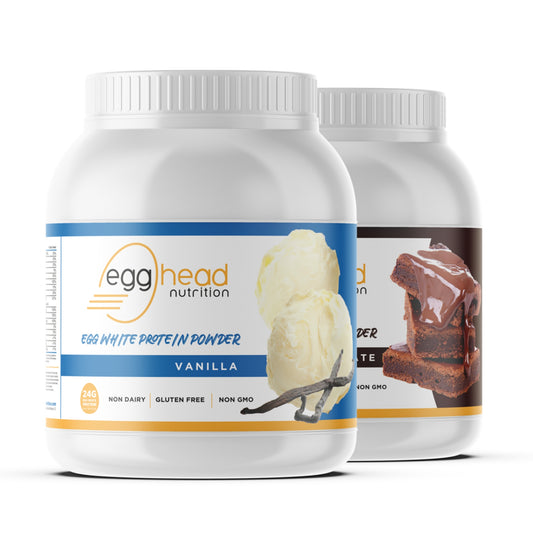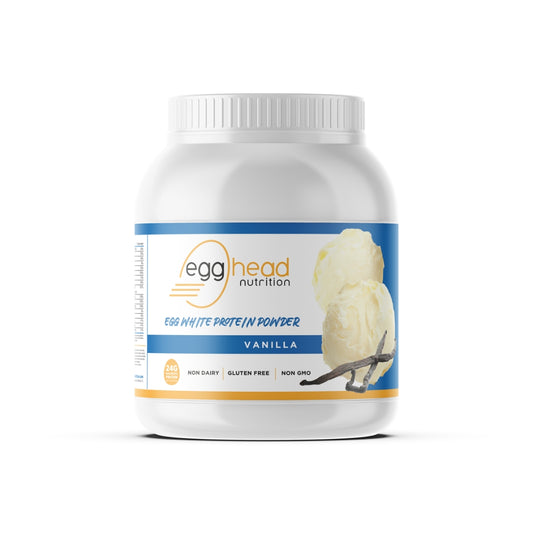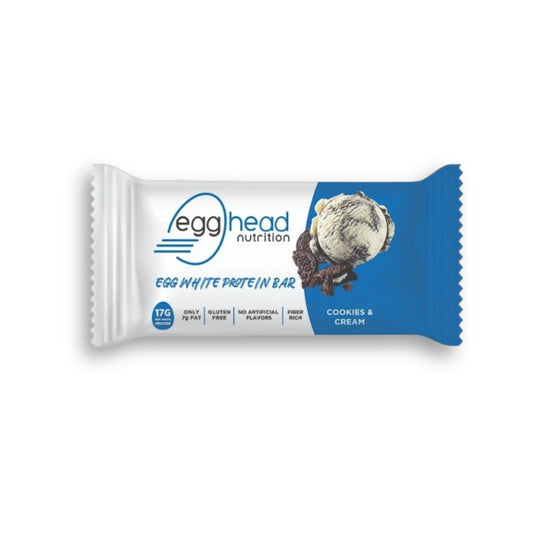Explore our comprehensive guide on how much protein per day is needed, protein sources, and balancing protein with a diet for optimal health and fitness.
Explore our comprehensive guide on how much protein per day is needed, protein sources, and balancing protein with a diet for optimal health and fitness.
Navigating the world of dietary protein can be complex, with varying opinions and scientific data presenting a range of perspectives. Whether you're looking to build muscle, lose weight, or simply maintain a healthy lifestyle, understanding the role of protein is crucial.
This comprehensive guide delves into the essentials of protein intake – from determining how much you need each day based on various factors, to exploring diverse protein sources, and offering practical tips for balancing your protein intake.
We aim to demystify protein and provide you with the knowledge to make informed choices for your dietary needs and health goals.
How Much Protein Per Day is Needed? Understanding the Basics
Protein is more than just a part of your diet; it's a critical component of your overall health. Every cell in the human body contains protein, making it essential for bodily functions. It's made up of smaller units called amino acids, which are often referred to as the building blocks of the body.

While some of these amino acids are produced by the body, others, known as essential amino acids, must be obtained from food. This makes understanding the role of dietary protein and its daily requirements vital for maintaining good health and bodily function.
Why Do You Need Protein Every Day?
The daily need for protein is not just about building muscle; it plays several crucial roles in the body:
1. Tissue Repair and Muscle Growth:
- Every day, your body undergoes wear and tear, especially if you engage in physical activities. Proteins help repair and rebuild tissues, including muscles, that get damaged or worn out.
- For athletes or physically active individuals, protein requirements may be higher to support muscle repair and growth, helping to improve strength and endurance.
2. Essential for Bodily Functions:
- Proteins are crucial in forming enzymes and hormones that regulate numerous body processes, from digestion to the regulation of metabolism and mood.
- Structural proteins, such as collagen and keratin, provide strength and elasticity to skin, hair, and nails, playing a significant role in maintaining their health and appearance.
3. Supports the Immune System:
- Proteins are key components in the formation of antibodies, which are essential for the immune system to fight off bacteria, viruses, and other pathogens.
- A sufficient daily protein intake ensures that the body can produce enough antibodies to maintain a robust immune response.
4. Serves as an Energy Source:
- While proteins are not the primary source of energy for the body, they can be used as a fuel source when carbohydrate and fat intake is insufficient.
- This aspect of protein metabolism becomes particularly important during periods of fasting, strict dieting, or intense physical activity.
5. Aids in Weight Management:
- High-protein foods tend to be more filling, reducing the likelihood of overeating and helping in weight management.
- The body also expends more energy digesting protein compared to carbohydrates and fats, which can contribute to weight loss efforts.
6. Critical for Cellular Functions:
- Protein is vital for the growth and repair of cells, impacting everything from muscle cells to red blood cells.
- Certain proteins act as transporters in the bloodstream, helping to distribute key nutrients throughout the body.
How Much Protein Per Day To Build Muscle?
To build muscle effectively, adequate protein intake is key. The recommended amount for muscle growth is typically between 1.6 to 2.2 grams of protein per kilogram of body weight per day. This is higher than the average adult's requirement, reflecting the increased need for muscle repair and growth following exercise.
Quality matters as much as quantity. Complete proteins, which contain all essential amino acids, are most effective for muscle development. These can be found in both animal and select plant-based sources.
Timing is also important. Consuming protein soon after a workout, ideally within 30 to 45 minutes, can enhance muscle recovery and growth. This approach capitalizes on the body's heightened nutrient absorption during this period.
However, protein intake should be balanced within the context of a well-rounded diet. Adequate overall caloric consumption is crucial, as a calorie deficit can impede muscle growth, even with high protein intake.
How Much Protein Per Day To Lose Weight?
Protein plays a crucial role in weight loss efforts. It can help reduce appetite, boost metabolism, and change several weight-regulating hormones. Protein's ability to increase satiety and reduce hunger makes it an essential component of a weight loss diet.
For weight loss, the recommended protein intake is slightly higher than the standard dietary recommendation. Consuming about 1.2 to 1.6 grams of protein per kilogram of body weight can be effective. This increase helps preserve muscle mass during weight loss, ensuring the weight lost is predominantly fat.
The quality of protein is important for weight loss. Lean protein sources such as chicken, fish, legumes, and low-fat dairy are preferable as they provide the necessary amino acids without excessive calories.

Incorporating protein into each meal can help manage hunger and cravings throughout the day, leading to a reduced overall calorie intake. This, combined with a balanced diet and regular physical activity, creates a sustainable approach to weight loss.
How Many Grams of Protein Per Day is Required
The amount of protein required each day can vary significantly depending on several factors, including age, gender, physical activity level, muscle mass, and overall health goals.
For the average adult, the general dietary guideline is about 0.8 grams of protein per kilogram of body weight. This equates to about 56 grams per day for the average sedentary man and about 46 grams per day for the average sedentary woman. However, these are just baseline numbers meant to prevent protein deficiency and may not be optimal for maintaining good health and function, especially for active individuals.
For those who are physically active, elderly, or recovering from illness or injury, protein needs are often higher. Active individuals and athletes might require anywhere from 1.2 to 2.0 grams of protein per kilogram of body weight to support muscle repair, growth, and overall recovery.
Similarly, older adults may need more protein – about 1.0 to 1.2 grams per kilogram of body weight – to help mitigate muscle loss that occurs naturally with aging and to maintain overall physical function.
It's important to note that while adequate protein intake is essential, excessive consumption far beyond these recommendations does not necessarily confer additional benefits and can, in some cases, lead to health issues.
Here's a table outlining the protein requirements per day for different groups of people, measured in grams per kilogram of body weight:
|
Category |
Protein Requirement (grams per kg of body weight) |
|
Average Sedentary Adult (Male) |
0.8 |
|
Average Sedentary Adult (Female) |
0.8 |
|
Active Adults & Athletes |
1.2 - 2.0 |
|
Elderly Adults |
1.0 - 1.2 |
|
People Recovering from Injury |
1.2 - 2.0 |
Sources of Protein Intake
Protein is an essential nutrient found in a variety of food sources, both animal and plant-based. Including a diverse range of protein sources in your diet is beneficial for obtaining all the essential amino acids your body needs. Here's a look at some common sources of protein:
Animal-Based Protein Sources:
- Meat: Includes beef, pork, lamb, and other red meats. These are high in protein but can also be high in saturated fats.
- Poultry: Chicken, turkey, and other poultry offer leaner options with good protein content.
- Fish and Seafood: Options like salmon, tuna, and shrimp are not only high in protein but also offer healthy omega-3 fatty acids.
- Eggs: Known as a complete protein source, eggs contain all nine essential amino acids.
- Dairy Products: Milk, cheese, yogurt, and whey protein are excellent sources of protein and contain other vital nutrients like calcium.
Plant-Based Protein Sources:
- Legumes: Beans, lentils, and chickpeas are great protein sources for vegetarians and vegans.
- Nuts and Seeds: Almonds, walnuts, flaxseeds, and chia seeds are not only high in protein but also contain healthy fats.
- Tofu and Tempeh: Made from soybeans, these are staples in many vegetarian and vegan diets.
- Whole Grains: Quinoa, brown rice, and oats contain more protein than most other grains.
Protein Supplements:
-
Protein Powder: These are a popular supplement, especially among athletes and bodybuilders. Protein powders can be a convenient way to increase protein intake, especially post-workout and are easy to add into your daily diet. For those seeking high-quality egg white protein powders, Egghead Nutrition offers the best options available, including our delicious vanilla protein powder and chocolate protein powder, perfect for complementing your dietary needs.
- Protein Bars: These are a convenient snack option, offering a quick protein boost. However, it's important to check for added sugars and other ingredients. Egghead Nutrition brings you an irresistible selection of protein bars, including our decadent cookies and cream protein bar, the creamy peanut butter protein bar, and the delightfully fruity strawberry protein bar, each designed to satisfy your cravings while boosting your protein intake.
Protein and Health Considerations
Protein is a crucial nutrient for the body, but like all things, it should be consumed in moderation. Understanding the balance and impact of protein intake, especially in the context of various health conditions, is essential for maintaining overall well-being.

The Impact of Too Much Protein
While protein is essential for many bodily functions, excessive intake can have potential health implications:
- Kidney Strain: High levels of protein, particularly in individuals with pre-existing kidney conditions, can exacerbate kidney stress. This is because the kidneys have to work harder to eliminate the byproducts of protein metabolism.
- Bone Health: There's a misconception that high protein intake can lead to calcium loss from bones. However, recent studies suggest that protein works synergistically with calcium to improve bone health. Only in cases of extreme protein intake without adequate calcium intake might there be a concern.
- Weight Gain: Excessive protein, especially when consumed as part of a high-calorie diet without adequate physical activity, can lead to weight gain, as excess calories are stored as fat.
- Digestive Issues: Overconsumption of protein, particularly from animal sources, might lead to digestive problems like constipation or diarrhea in some individuals.
- Dehydration: Higher protein diets can increase fluid needs, as the body uses more water to flush out nitrogen, a byproduct of protein metabolism.
Managing Protein Intake with Medical Conditions
For individuals with certain medical conditions, protein intake needs to be carefully managed:
- Kidney Disease: Patients with kidney disease often need to follow a low-protein diet to reduce strain on the kidneys.
- Liver Disease: In advanced liver disease, protein intake might need to be moderated, as the liver can struggle to process the byproducts of protein metabolism.
- Phenylketonuria (PKU): People with PKU, a rare inherited disorder, must follow a diet low in phenylalanine, an amino acid found in protein.
- Gout: High-protein diets, especially those rich in purines (found in red meat and certain fish), can exacerbate gout symptoms. Patients might need to limit these protein sources.
- Cancer and Other Chronic Illnesses: Certain cancers and illnesses may alter protein requirements, either increasing or decreasing the need based on the condition and treatment strategy.
Factors that Impact Your Protein Intake
Protein requirements are not one-size-fits-all; they vary from person to person based on several factors. Understanding these factors can help tailor protein intake to individual needs, ensuring optimal health and well-being. Here are the primary factors that influence how much protein you should consume:
- Age: As you age, your body becomes less efficient at processing protein, which can lead to muscle loss. Older adults may need more protein to maintain muscle mass and strength compared to younger individuals.
- Body Weight and Composition: Protein needs are often calculated based on body weight. Individuals with a higher body weight or those seeking to gain muscle mass may require more protein. Additionally, those with a higher percentage of muscle mass typically need more protein to maintain it.
- Activity Level: Active individuals, particularly those engaging in regular strength training or endurance sports, have higher protein needs to repair and build muscles. Athletes or those with physically demanding jobs may need significantly more protein than sedentary individuals.
- Health Status: Certain health conditions can affect protein requirements. For example, individuals recovering from surgery or injury may need more protein for tissue repair. Conversely, those with kidney disease often need to limit protein intake.
- Dietary Preferences and Restrictions: Vegetarians and vegans, who exclude certain or all animal protein sources, need to plan their diets carefully to ensure they get enough protein and all essential amino acids from plant-based sources.
- Metabolism and Hormonal Factors: Individual metabolic rates and hormonal balances can affect how your body processes protein. For instance, conditions like hyperthyroidism can increase protein needs due to a faster metabolism.
- Pregnancy and Breastfeeding: Women who are pregnant or breastfeeding have increased protein needs to support the growth and development of the baby and the production of breast milk.
- Goals for Weight Management or Muscle Building: Those aiming to lose weight might increase their protein intake to help with satiety and prevent muscle loss. Similarly, individuals focusing on muscle building need more protein to support muscle repair and growth.
Practical Tips for Managing Daily Protein Intake
Properly managing your daily protein intake is key to achieving your health and fitness goals while maintaining overall well-being. Here are some practical tips to help you measure and track your protein intake, and balance it with other essential nutrients in your diet.
Measuring and Tracking Your Protein Intake
- Know Your Protein Needs: First, understand how much protein you need based on factors like age, weight, activity level, and health goals. Use this as a guide to plan your meals.
- Read Food Labels: Get into the habit of reading nutritional labels on food products. This can help you understand how much protein is in each serving.
- Use a Food Diary or App: Keeping a food diary or using a nutrition tracking app can be an effective way to monitor your daily protein intake. Record everything you eat and drink, and note the protein content.
- Portion Sizes: Familiarize yourself with standard portion sizes for protein-rich foods. For example, a single serving of meat is typically about the size of a deck of cards.
- Consider Protein Quality: Focus on high-quality protein sources that provide all essential amino acids, like lean meats, fish, eggs, dairy, legumes, and certain grains.
Balancing Protein with Other Nutrients in Your Diet
Combine Protein with Fiber: Pair protein-rich foods with high-fiber foods like vegetables, fruits, and whole grains. This combination can aid digestion and enhance satiety.
- Incorporate a Variety of Foods: Ensure your diet includes a variety of foods to get a balance of proteins, carbohydrates, fats, vitamins, and minerals. This is particularly important for vegetarians and vegans to obtain all essential amino acids.
- Stay Hydrated: High protein intake can increase the need for hydration. Drink plenty of water throughout the day.
- Limit Processed Protein Sources: While convenient, processed protein sources like deli meats and some protein bars can be high in sodium and preservatives. Opt for whole, minimally processed foods when possible.
- Timing of Protein Consumption: Distribute protein intake evenly throughout the day. Consuming protein with each meal can help maintain muscle mass and keep you feeling full.
- Consult with a Nutritionist: If you have specific dietary needs or health conditions, consulting with a dietitian or nutritionist can help tailor your diet for optimal protein intake and overall nutritional balance.
Conclusion
In conclusion, understanding the role and importance of protein in your diet is crucial for maintaining good health, supporting physical activity, and achieving specific fitness goals. From the daily requirements of different individuals to the varied sources of protein, both animal-based and plant-based, this guide has covered the essentials of protein intake.
We've explored how factors like age, activity level, and health conditions impact your protein needs, and provided practical tips for effectively managing and balancing protein with other nutrients in your diet. Remember, while protein is a key macronutrient, it works best in harmony with a balanced diet and a healthy lifestyle.
Whether you're an athlete, someone trying to lose weight, or just aiming to maintain a healthy diet, a well-rounded approach to protein intake can significantly contribute to your overall well-being.







